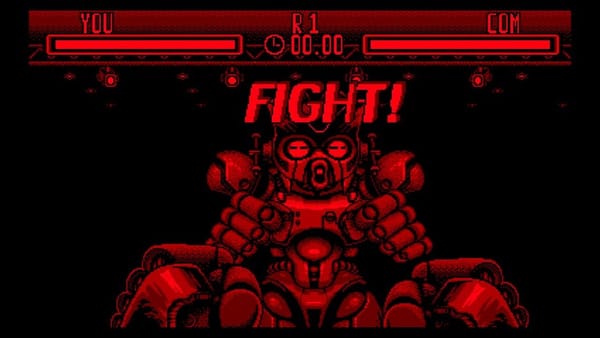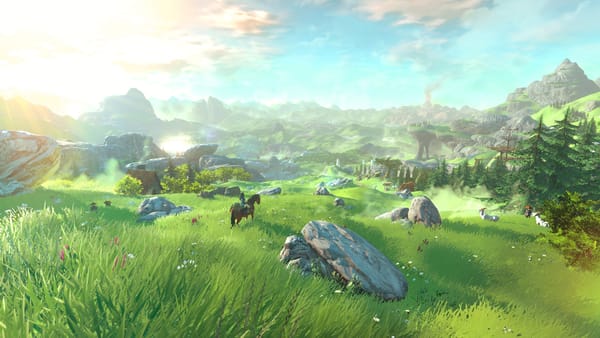#28: See those mountains in the distance?
We're deleting them.
Yesterday, scrappy workers’ collective Rockstar Games announced that, as part of its latest update, the ever-expanding GTA Online would be getting a little smaller. I haven’t played anywhere near enough of GTAV’s colossally successful multiplayer component to assess the precise significance of the ‘Job’ missions Rockstar is removing from the game. My launch-week experience with it was so dispiriting — two days stuck in a virtual carpark failing to log in amid the early crush, then a few hours getting ganked repeatedly on the same street corner while a pal and I tried and failed to hold up a gas station — that I never went back. But this is a broader trend in live-service games. One that is inevitable, in a way: nothing can keep growing forever, and even the tallest tree needs pruning eventually. Still, it makes me a little uncomfortable.
Reading the GTA news yesterday I was reminded of my trip to Los Angeles in 2017 for the announcement of Destiny 2. I asked the game’s top brass, director Luke Smith and executive producer Mark Noseworthy, why it was necessary to hit the reset button with a sequel, rather than continue to update the original game in the manner of, say, World Of Warcraft. “Destiny has over 5,000 items in it,” Noseworthy told me. “You want to try and balance that PvP game?”
That is hard to argue with. But it was a short-term solution. Four years later, Destiny 2 is bigger than its predecessor ever was, and has grown to such levels that Bungie has introduced a system through which it has removed not just a slice of old content, as Rockstar is now doing to GTA Online, but entire planets, maps, activities, vendors and social spaces. A good chunk of the game’s sprawling weapon and armour pool was also sidelined. At the launch of the most recent major expansion Beyond Light, around half the pre-existing game was taken away.
The reason for this, laid out in welcome detail here, is that just like its predecessor, Destiny 2 had grown too big to efficiently update and maintain. Bugs were becoming more prevalent; install size had ballooned; and development was taking longer because everything had to be stability-tested against content from years ago that virtually no one was playing anyway. Besides, nothing was being taken away forever. Content cycles in and out of the vault every year, and will be worked on in the background so it can come back at a later date in better, more relevant shape. Rockstar says it plans to do similar with GTA Online. I can see the logic in it, sure.
But this is the awkward side of live-service games. We buy into them on the promise that they are not just pastimes, but hobbies; that they are places where we will make enduring memories, and worlds that will grow and improve. The challenge inherent in making a long-term success out of this kind of game is in satisfying a playerbase with an insatiable hunger for more content and improvements. The moment you start removing things, that challenge becomes even harder. You risk upsetting a community with whom your relationship is, let’s face it, always on a knife-edge. And deleting the old to make way for the new raises expectations — the stuff you’re adding must be of a substantially higher quality than that which you’re taking away — which naturally raises the prospect of disappointment. Sure, removing old things from a living game simplifies your development processes. But what’s in it for me?
Don’t get me wrong: I want developers’ lives to be easier. This industry has a longstanding cultural problem with overwork, and as we start to think about the shape of the world after the pandemic, a rebalancing of work and leisure is near the top of the to-do list. But is this really going to achieve that? I’m not sure. Taking away things that players have paid for, grinded out or enjoyed, on the promise of better things to come, might solve a problem in the here and now, but I fear it risks causing others down the road.
Still, what’s the alternative? How else are these games supposed to age gracefully? I will happily admit I have no idea. These unknowns, and the little experiments they set off, are part of why I find live-service games so fascinating. I wish Rockstar, Bungie and co the very best. I will be watching with great interest.
MORE!
- Sony did a State Of Play broadcast last night, with deeper looks at Deathloop and Death Stranding: Director’s Cut, and news of a delay for the spectacular brawler Sifu. My most anticipated game of 2021 is now my most anticipated game of 2022. Bah.
- Hotel Barcelona, the horror-game collaboration between Swery65 and Suda51, is still happening, to the extent that it ever was happening, which I’m not sure it ever really was. Yes, I’m confused too.
- Cheating could soon become widespread in console online games thanks to some novel machine-learning tech, it says here.
- Over 9,000 games launched on Steam in 2020, according to this. That’s one new game every 53 minutes. Oh, and 5% of the games made 90% of the sales. It’s rough out there.
- If you’ve got half an hour to spare, this Geoguessr speedrun from SGDQ is quite brilliant.
That’s your lot for the week — thanks so much for tuning in. If you’ve enjoyed any of this week’s installments, do share them around. I’m taking great pleasure in seeing things I wrote weeks ago continue to rack up views, which I wasn’t expecting from an email newsletter but shows, I think, that we’re onto something here. And if you’d like to support Hit Points with a paid subscription, and earn in the process my eternal adoration and respect — and the promise of a high five should we ever meet in person — you can do that with the button below. Have a great weekend!





